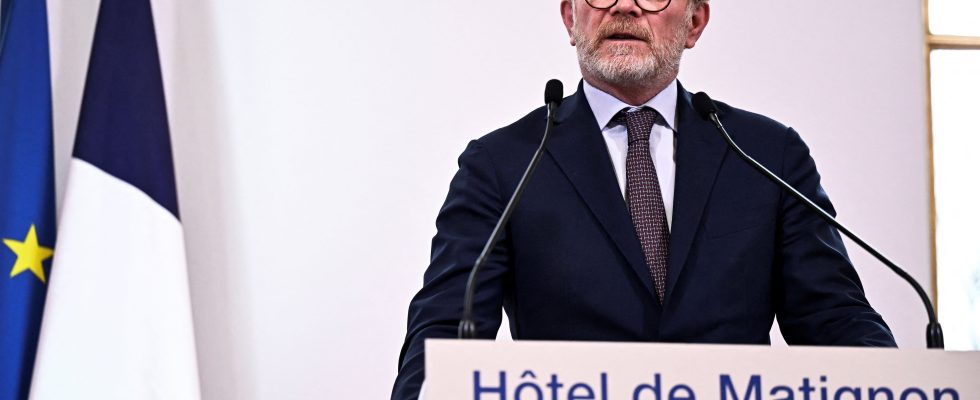This was an important demand from part of the agricultural world, to which the executive responded this Thursday, February 1. The government announced that it was going to “pause” the Ecophyto plan, which must set objectives for reducing the use of pesticides and which has crystallized the anger of field crop producers.
“We are therefore going to rework the Ecophyto plan, putting it on hold, the time to rework a certain number of aspects, to simplify it,” declared the Minister of Agriculture Marc Fesneau during the news government announcements to appease the discontent of the agricultural world. Prime Minister Gabriel Attal had said a little earlier that Ecophyto would be “shut down while a new indicator is put in place”. The central indicator of the plan, Nodu, which measures the use of molecules by farmers, is in fact contested by some agricultural organizations.
A “scandal” for the Peasant Confederation
A new government strategy, called “Ecophyto 2030” (or “Ecophyto III) was currently under consultation. The third part of this plan aimed to halve the use of pesticides by 2030 (compared to 2015-2017 ) and to accelerate the search for alternative solutions. This plan was immediately rejected by producers of large crops (cereals, oil seeds, sugar, beets).
The first Ecophyto, launched in 2008, already aimed to halve the use of pesticides (herbicides, insecticides, fungicides) in 10 years, without the set objectives really progressing over the years. To relaunch the project, the government launched Ecophyto II in October 2015: according to the website of the Ministry of Agriculture, it was to provide “new impetus to achieve the objective of reducing the use of plant protection products by 50 % by 2025 and to phase out glyphosate by the end of 2020 for the main uses and at the latest by 2022 for all uses. With the vagueness that we subsequently experienced, particularly on glyphosate. Before then Ecophyto III, which was to be completed “at the end of January, beginning of February”, the Ministry of Agriculture assured TF1 two weeks ago, which aimed to halve the use of pesticides by 2030 compared to 2015-2017. And which is therefore paused until further notice.
The FNSEA and the Young Farmers, who form the majority agricultural union, and who called this afternoon to suspend the blockades, were among the most virulent against this plan, demanding a “moratorium on bans” of pesticides and a “rejection of Ecophyto”. But part of the agricultural world was also opposed to this rollback on restrictions on phytosanitary products. This is particularly the case of the Confédération paysanne, the third union in the sector and rather classified on the left, which denounced a “scandal” on the social network (ex-Twitter). “We will continue to degrade the health of farmers, our soils and our environment. And we will continue to fatten the multinational pesticide manufacturers,” criticized the union, describing this measure as a “diversion of this which is required in the field”
This measure was also denounced by the environmental movement. For the head of the environmentalist list for the Europeans Marie Toussaint, the putting on hold of this plan “is an unacceptable step backwards. The government has just given a poisoned gift to the agricultural world”. The spokesperson for the NGO Générations Futures denounced “totally retrograde measures taking us back more than 15 years”. “All of this makes no sense,” laments Sandrine Bélier, director of the NGO Humanity and Biodiversity, contacted by AFP. “Certainly it is better to suspend than to have a discount strategy, but Ecophyto is the main plan which supports farmers in their economic transition”, via the financing of research and experiments
The question of “no-treatment zones”
Still on this sensitive subject of the regulation of phytosanitary products, Marc Fesneau also announced that the government would appeal in procedures concerning “non-treatment zones” (or ZNT) with pesticides, i.e. the safety distances to be respected at proximity to homes or waterways. The Orléans administrative court annulled at the beginning of January prefectural decrees from five departments approving departmental charters setting the conditions for the implementation of these ZNTs.
Gabriel Attal also targeted the independent health agency Anses without naming it by affirming his desire to “get out of a situation where our health agency” bans a molecule of phytosanitary product in France before it is banned in the EU , as was the case for the herbicide S-metolachlor.
